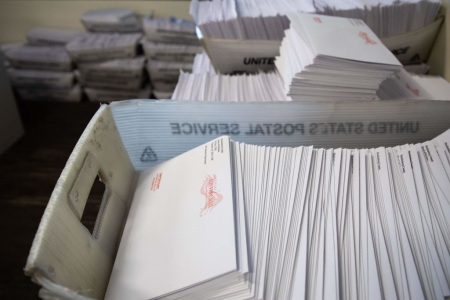Supreme Court rejects Texas' election lawsuit; 6 battleground states hold hearings on voter fraud claims

More than a month after Election Day, allegations of voter fraud continue to surround the 2020 presidential election. As courts consider lawsuits challenging election results in six battleground states, lawmakers have been holding hearings on election integrity.
On Friday, the U.S. Supreme Court said it won’t hear a lawsuit by the state of Texas to challenge the election results in four of the battleground states: Georgia, Michigan, Pennsylvania and Wisconsin. Texas Attorney General Ken Paxton alleged on Tuesday that those states exploited “the COVID-19 pandemic to justify ignoring federal and state election laws and unlawfully enacting last-minute changes, thus skewing the results of the 2020 General Election.”
In an order, the justices denied Texas' request, saying the state lacked legal standing.
“Texas has not demonstrated a judicially cognizable interest in the manner in which another State conducts its elections," the order read. "All other pending motions are dismissed as moot.”
More votes were counted in the 2020 presidential election than any other in U.S. history. Former Vice President Joe Biden got over 80 million votes, the most votes for any presidential candidate, to President Trump’s 74 million, the second-most votes in an election. Their totals also broke the record of votes cast for former President Barack Obama, who received 69.5 million votes in 2008.
After The Associated Press and other media outlets declared Biden the winner of the 2020 presidential election with a projected 306 electoral votes to Trump’s projected 232 electoral votes, the Republican National Committee and Trump campaign called for recounts, vote audits and signature checks. The RNC, Trump campaign and other individuals also filed lawsuits in the six battleground states.
The following pages list the latest developments in those six states as well as some of the election fraud claims in those states.





















